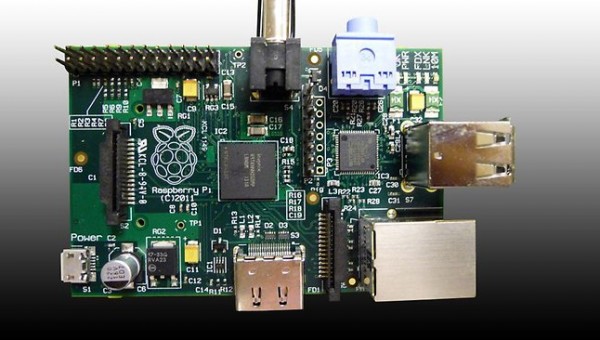
The Raspberry Pi Foundation, a British organization based at Cambridge University, has released one of the smallest and cheapest personal computers even seen. Termed Raspberry Pi, the computer is the size of a credit card and looks more like a bare circuit board than a full-fledged computing device. Raspberry Pi is currently selling for $35, but an updated version, expected to be released in the next several months, is expected to retail for just $25.
The computer’s circuit board includes an Ethernet connection, two USB ports, and an SD card port. These hookups allow for internet use, external device connection, and memory addition, respectively. The device is powered by a USB mobile charger – similar to what one would use with a cellphone – and it runs an open-source Linux operating system. Within only hours of its launch, the Raspberry Pi Foundation announced that all the computers had already been sold.
The device is targeted towards children who have a programming interest. The project was initially developed after computer scientists at Cambridge realized that fewer students were taking their courses each year – and that these students were also increasingly unqualified. They decided that a stripped-down and accessible computer, modeled after devices from the 1980s, would help get children interested in hands-on programming once again.
Raspberry Pi has, consequently, been enthusiastically received by educators and programmers. But most of its initial purchases appear to have been made by tech geeks and hobbyists who seek to convert the computer for a variety of end-uses ranging from custom alarm clocks to communication equipment that complies with the specifications of atca boards. These end-uses are incredibly numerous; in fact, there is a website dedicated to documenting them.
Even so, a few popular applications have gained more traction than the rest:
-Build a smart TV. Instead of shelling over thousands for a television that provides applications and internet connectivity, you can hook your Raspberry Pi computer up to a TV console and then run a browser off of it.
-Store media. With the addition of some USB storage, the Raspberry Pi can quickly be transformed into an impressive media device. You can stream high definition movies and listen to music that can be stored (and easily transportable) on the tiny computing device.
-Hook up computers. The Raspberry Pi can also be used to connect two computers and control one device remotely from the other. All you need is a compatibility application such as the VNC Viewer app.
These are just a few of the many ways that the Raspberry Pi can be used for various computing needs. If you have a programming interest and a desire to try something new, you might want to start preparing for the next round of Pi sales.










Comments